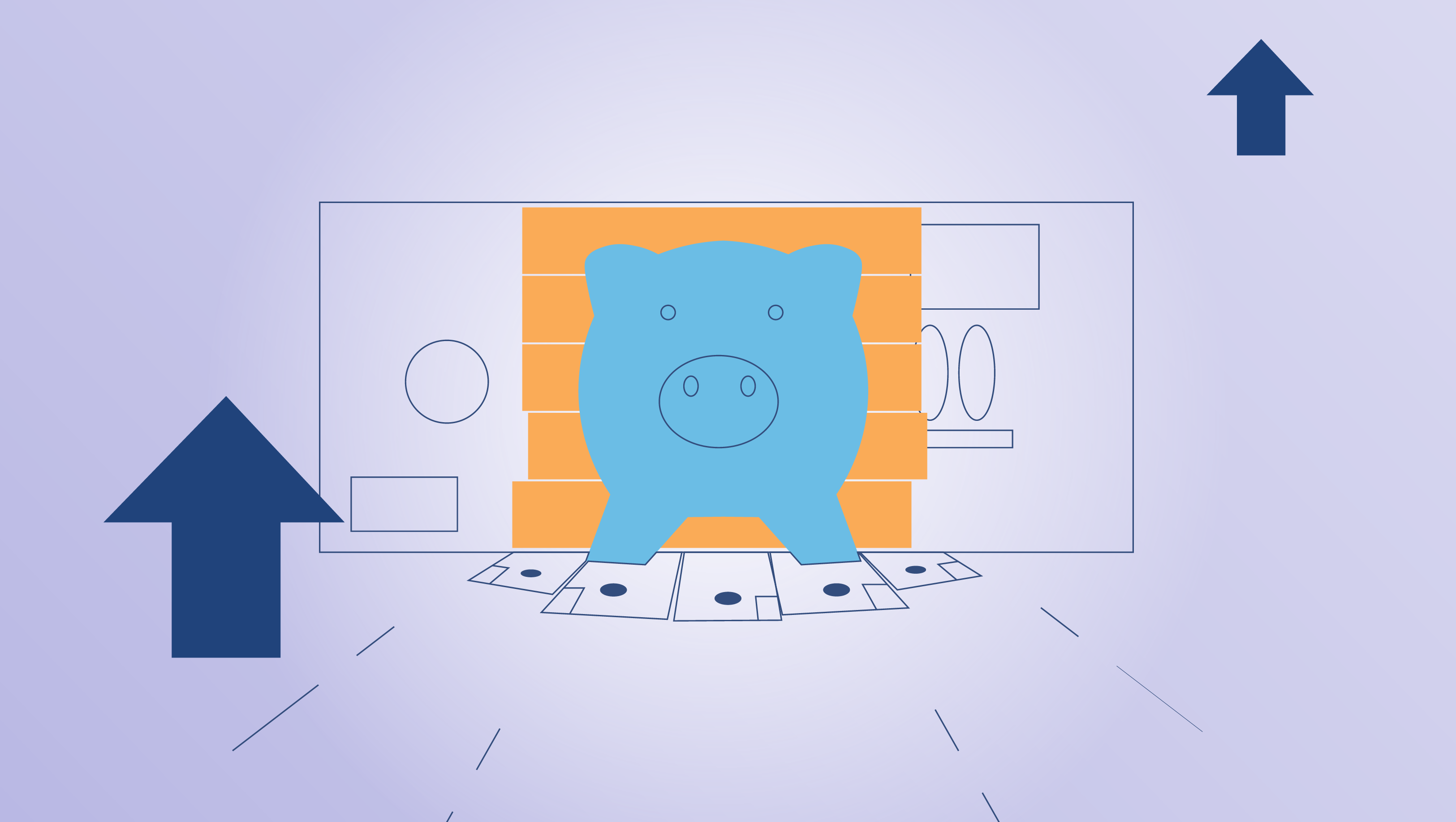Your read progress
How does the UK interest rate rise affect you?
4 minute read
Updated 17th September 2025 | Published 30th September 2022

Last week, the Bank of England raised the UK bank rate from 1.75% to 2.25%. The decision takes rates to the highest level since 2008 and comes as the Bank of England tries to combat rising inflation. Mortgage lenders – including HSBC and Santander have now suspended mortgage deals amid fears of further interest rate hikes in the coming months.
Are you wondering what ‘bank rates’ and ‘interest rates’ are? Or, would you like to know how the latest interest rate change will affect you? If you answered yes to either question, keep on reading. We’ve created a quick guide to explain how the latest interest rate rise will impact you, what we can expect moving forward, and what support is available.
What are interest rates?
Interest is the cost of borrowing money or the reward for saving money.
Here is what the interest rate tells you:
- How high the cost of borrowing is
- How high the rewards are for saving
How do interest rates affect you?
Savers: If you have a savings account, the interest rate tells you how much additional money will be paid into your account, as a percentage of your savings.
The higher the percentage = the more money paid into your account
Borrowers: If you borrow money (e.g. a mortgage or a credit card), the interest rate is the amount you are charged for borrowing money, shown as a percentage of the total amount of the loan.
The higher the percentage = the more you have to pay back
What is 'Bank Rate’?
'Bank Rate' is the single most important interest rate in the UK. The Bank of England set this interest rate. It’s also referred to as the ‘Bank of England base rate’ or even just ‘the interest rate’.
Why is it important? The bank rate influences other interest rates in the UK's economy. E.g. the lending and savings rates offered by high-street banks and building societies.
How does the interest rate rise affect mortgage rates?*
- Unless you are on a fixed-rate mortgage it's likely your rates will go up and your monthly mortgage payments will increase.
- If you have a fixed-rate mortgage, nothing will change during the fixed period.
*Mortgage rates are based on a number of different factors, not just the bank rate.
How does the interest rate rise affect your savings?
In theory, the interest rate rise should lead to higher interest on savings accounts. If you fancy more bang for your buck, now is a good time to check out the best savings accounts so you can get the best value for money.
Our Smart Money People community have been writing savings account reviews to help you find the best companies, and avoid the worst. You can check the reviews out here.
How do interest rates affect the cost of living?*
- Interest rate changes can influence the interest charged on things like credit cards and loans.
- When interest rates are high, demand might fall as people put more money into their savings pots if they can afford it. This, in theory, should drive down the prices of goods and services.
*Price changes are not a direct result of interest rate changes. Other things affect the cost of living such as energy, fuel and food costs. The cost of living is measured by inflation, not interest rates.
What can we expect moving forward…
• The next Bank Rate (aka the base rate or interest rate) announcement is due on 3rd November 2022.
• Bank of England says it will not hesitate to change interest rates by as much as needed to return inflation to the 2% target
• We can expect further bank rate hikes in the coming months
• If the bank rate goes up mortgage rates will likely follow and households will spend more on mortgage repayments.
Support is available
Feeling overwhelmed by money worries? You’re not alone and it’s completely normal to feel anxious or down when you’re facing financial pressure. It’s never too late to ask for help, and if your money worries are having an impact on your mental health, there are plenty of free resources available that are ready to help you get back on track.
Visit our blog which lists what support is available if you need it.
The contents of this blog don’t constitute advice. If you are struggling with your mental health and have money worries, please visit some of the resources listed here. For 24-hour support, you can also call Samaritans on 116 123.

Written by Emma
Head of Marketing
Emma joined us in 2021. She is passionate about ensuring others make good choices with their money using all the information and data available.
As Featured By
Join our mission
We use the power of consumer reviews to help increase trust and transparency in financial services and to deliver industry leading insight and events.
Write a reviewExplore our other topics

News: Awards

News: Industry news

News: Smart Money People news

Guides: Smart money guides

Guides: Smart money tips


.png)


